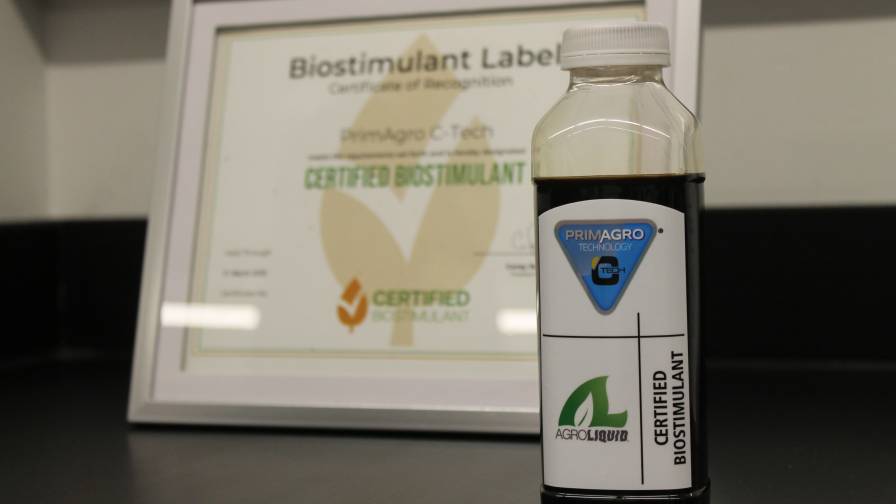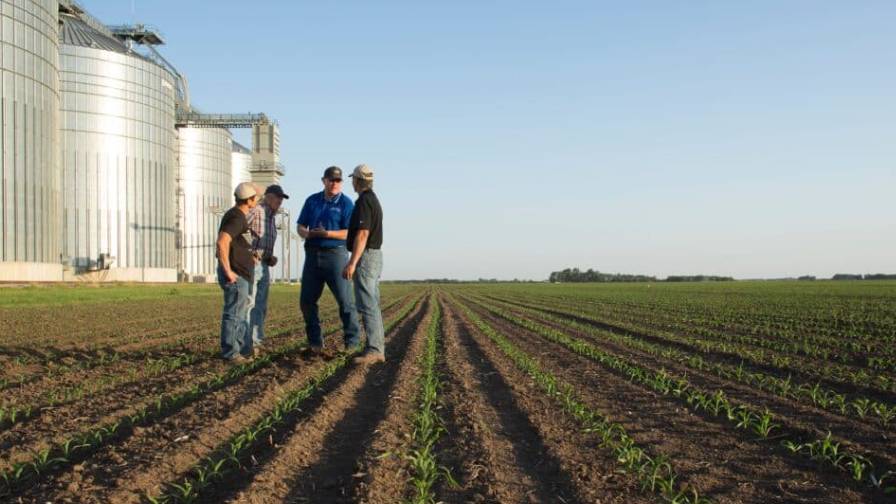Happy Anniversary, CCA Program!
 The Certified Crop Adviser (CCA) program celebrates its 20th anniversary this year, and continues to strive for excellence in agriculture by challenging agronomists to maintain their expertise.
The Certified Crop Adviser (CCA) program celebrates its 20th anniversary this year, and continues to strive for excellence in agriculture by challenging agronomists to maintain their expertise.
Becoming a CCA takes diligence and commitment, as those pursuing the certification need to pass two stringent exams and document two to four years (depending on their level of education) of advising experience in the agronomic community. Also, a form providing information about the client, time frame during which the applicant worked for them, company contact(s) and duties of the applicant must be completed with the inclusion of references.
Roughly 60% of applicants pass the exams on the first try, leaving those who fail to push themselves further if they truly want the certification, while those who pass can feel accomplished knowing that they are officially credible experts that are serious about their chosen career. Applicants may also take comfort in the fact that this pass rate has remained fairly consistent over the last two decades.
“We want to keep the difficulty of the exam the same regardless of when you take it,” says Luther Smith, director of certification programs at the American Society of Agronomy. “We don’t want it to get harder or easier.”
This consistency has clearly seen positive results, too, as the CCA program was established due to a need for more agronomic expertise for addressing environmental concerns, which revolved mostly around fertilizer nutrient use and management. There were also issues with pesticide use, phosphorous levels in the soil and runoff in the waterways. By identifying agronomists who meet high standards of expertise for growers to consult, the CCA program has been able to help solve and reduce such problems in the environment. “The program improved it [the environment] because it’s helped raise the professionalism and the knowledge of the adviser and how it’s being delivered to the grower,” Smith says.
A Global Focus
The program, currently available in the U.S., Mexico, Canada and India, intends to expand to other countries after it has strengthened here first. Smith explains that the program’s numbers had dropped somewhat after being so high in the beginning, but that there has been a resurgence, the number of applicants for the exams having increased significantly in the last year alone. There is a great presence of CCAs in Canada, while there is also a growing number in Mexico and a decently significant program in India. Smith expresses that Argentina is a place of eventual interest for the program, but that more evaluation is required.
When asked how such an expansion could benefit the environment, the economy and overall agronomic practices on a global scale, Eric Welsh, marketing manager for the CCA program, said: “The main objective of the CCA program is to always be looking out for customers’ profitability while optimizing and protecting natural resources. This lends itself to concerns about food quality and availability and water quality.” Smith adds that expanding the program would help make better use of acreage and provide uniformed standards.
In order to stay certified, CCAs need to stay updated and regularly meet a set number of hours of continued education, and one way to fulfill these hours is through nonprofit work. Welsh says that the program always encourages giving back to those in need, such as people who live in places where starvation or famine is a problem. The program particularly promotes such nonprofit work to individuals that have an especially large amount of expertise.
While the program may go through cycles where the demand for CCAs is higher than usual due to various circumstances, Smith emphasizes that the number of those certified has steadily remained around 13,000 people for some time now. Welsh mentions that CCAs’ education experiences have hopefully progressed with current technology, which would naturally yield more applicants.
Regardless, Welsh says that the CCA program has its eye looking toward the future. “In-field experience and practical application, along with the program’s system of standards, are what is needed to provide quality professionals that can meet the demands of today’s employers and ensure the conscientious and prosperous future of agriculture,” he says.





